Advertisement
Pilgrim Nuclear owner agrees to wastewater study, but says it won't pay for it
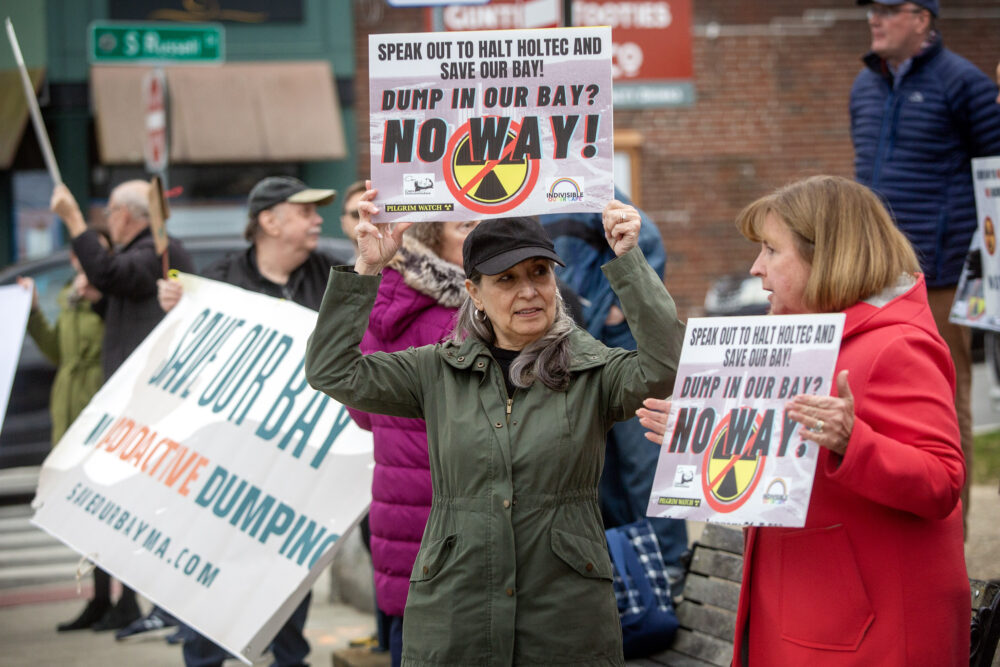
The company decommissioning the Pilgrim Nuclear Power Station agreed, again, to cooperate with an independent environmental study, but refused U.S. Senator Ed Markey's demand that they pay for it. The study would evaluate the risks involved with discharging more than a million gallons of radioactive wastewater into Cape Cod Bay.
The company, Holtec, had committed to an independent study at a 2022 U.S. Senate hearing chaired by Sen. Markey, but more recently claimed that they had no funding available for the study.
"We stand ready to assist your third-party, independent experts," wrote Holtec President Kelly Trice in a March 31 letter to Sen. Markey. "We understand the public interest in the issue and that this issue has become one solely based on perception, not on science. We believe your independent panel will confirm the scientific facts to inform the public."
In the letter, Holtec made no offer to fund the study. Instead, the letter noted that in previous statements Holtec CEO Kris Singh "did not offer to pay for third-party consultants, but rather provide data and access to your experts."
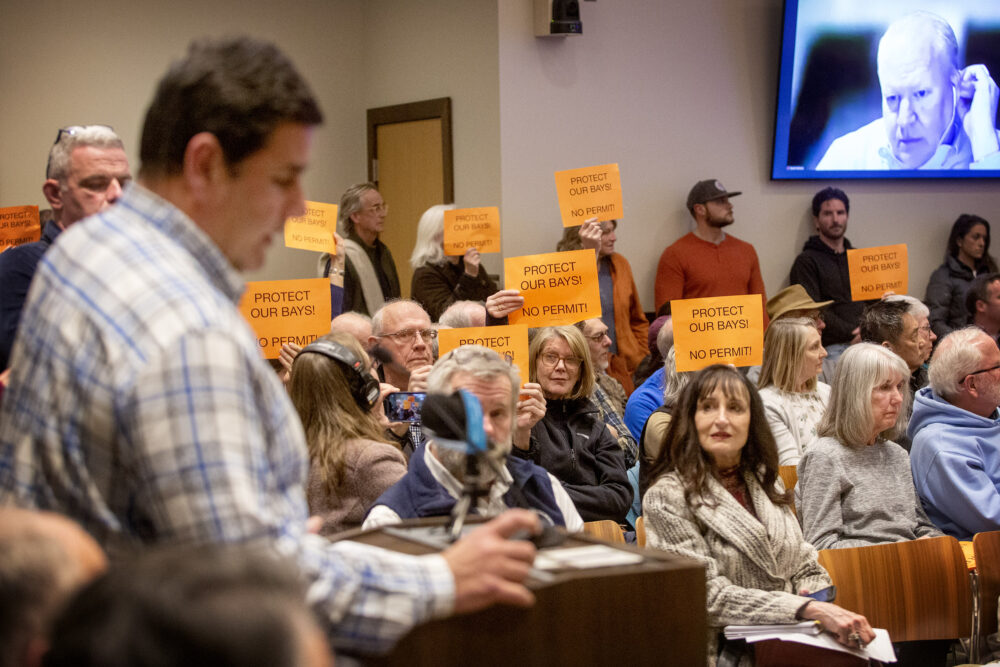
The funding for an independent study will likely continue to be a point of contention.
At a recent public meeting of the Nuclear Decommissioning Citizens Advisory Panel (NDCAP) in Plymouth, a spokesman for Sen. Markey argued that the money should come from a trust fund set aside for decommissioning. According to a Holtec report released today, there is $518 million remaining in the fund.
"Holtec is trying to push the bill for an independent study back on the ratepayers who already paid into the decommissioning trust fund for years. That is unacceptable," said Sen. Markey. "Holtec can't pretend it's meeting its commitments while dodging its debt to the community."
Also on Friday, Holtec officially asked the Environmental Protection Agency to amend Pilgrim's wastewater permit. While the EPA doesn’t oversee radioactivity in wastewater, Holtec still needs an updated permit to legally discharge any water from the spent fuel pool into the bay. Experts say it could take the EPA at least a year to issue a permit.
Advertisement
Holtec's announcements come amid growing concern from fishermen, business leaders, area residents and state and local officials who oppose the dumping.
About 50 protesters gathered outside Plymouth Town Hall before the most recent NDCAP meeting on March 27, holding signs with slogans like "Dump in our Bay? No way!" as passing motorists honked their horns in support. The meeting itself was standing-room-only, with about 100 people filling Plymouth's Great Hall.
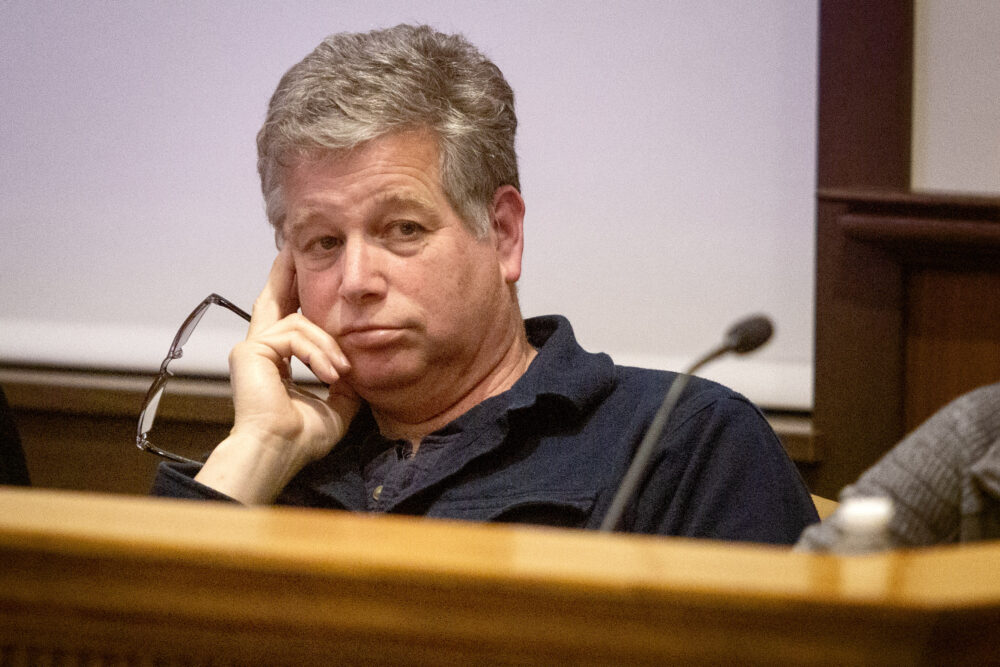
The wastewater in question is the 1.1 million gallons used to cool spent nuclear fuel rods. The water is known to hold both radioactive and non-radioactive pollutants, though the exact quantities of radioactive isotopes are unclear.
Holtec has also agreed to allow the state to conduct its own analysis of the water. Representatives from Holtec and the Massachusetts Departments of Environmental Protection and Public Health are scheduled to collect water samples on April 5. Each group will analyze the water samples separately and should have results within a month.
It is uncertain, however, whether a state analysis of the water or an independent scientific review will quell public concerns about discharging Pilgrim's wastewater into an ecosystem already stressed by pollution and climate change.
"What they're proposing is wrong. It shouldn't even be something that we should be talking about," said Mark Petitt, who runs Plymouth Charters, a fishing charter boat company. "I'm concerned that it'll hurt the environment, number one, which will trickle down to my business."
"Once they start doing this, once it's in the water, you can't take it back," he said.
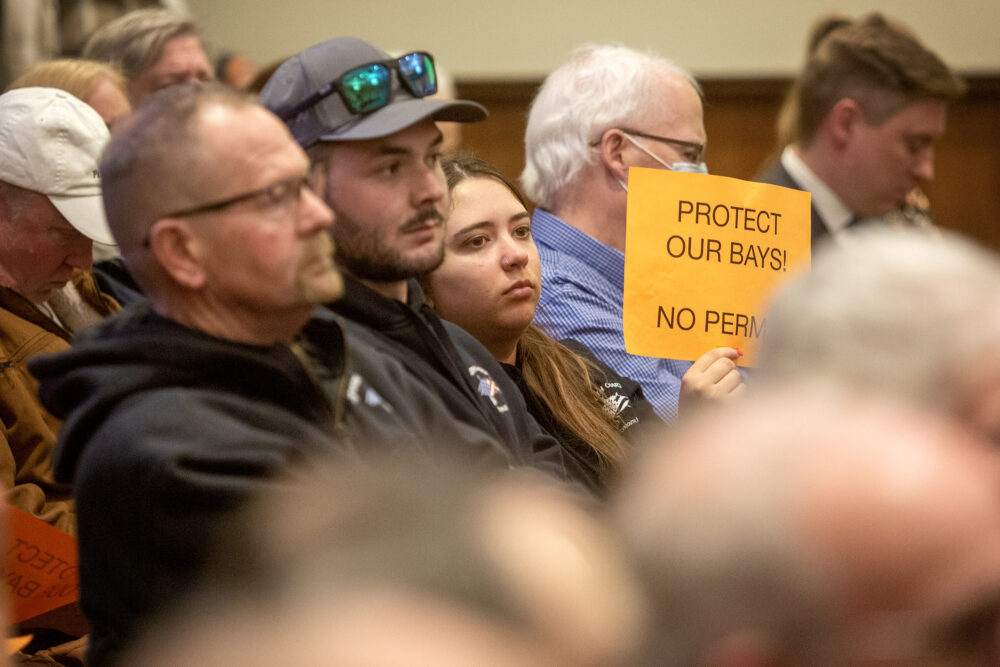
The Healey-Driscoll Administration has also expressed "serious concerns" about Holtec's plan to discharge wastewater from the nuclear plant into Cape Cod bay "and is monitoring this situation closely," according to a statement from MassDEP.
Holtec has proposed four options for disposing of the water: moving it to another facility for disposal; evaporating the water and discharging vapor; long-term onsite storage; or treating it to remove the non-radioactive pollutants and discharging it into Cape Cod bay.
Holtec maintains that discharging water into the bay would be safe, with radiation levels below limits set by the Nuclear Regulatory Commission.
"It has consistently borne out that the types of discharges that occur from nuclear power plants, whether those that are operating or those that are in decommissioning, are not at a level that results in any harm to the environment," said Holtec's Senior Compliance Manager David Noyes. "I feel confident that when we get this whole thing sorted out with the panel of independent experts, that they will affirm that."
Ken Buesseler, a marine radiochemist at the Woods Hole Oceanographic Institution, said more data is needed to fully understand the risks.
"We've been told it's fine, don't worry," said Buesseler. "But we're not seeing data that can help us assess which radioactive elements are there, and so we really can't say what the damage or risk would be if this water were to be released."
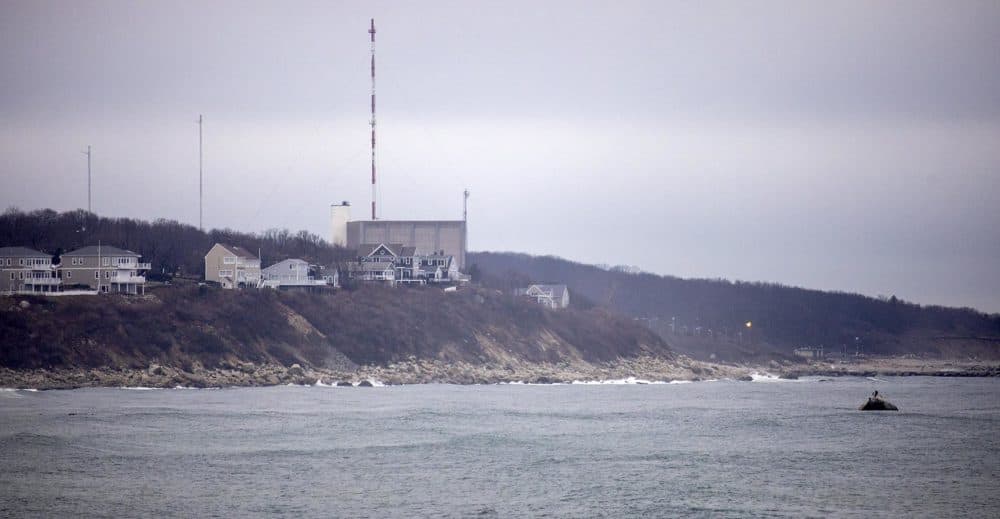
Opponents of the dumping argue that even if an analysis finds that the discharge is safe, it could still lead to stigma and economic harm.
"What is the reputational harm to irradiating Cape Cod Bay? And how does that impact our aquaculture, our commercial fishermen, our hotel, motel and overnight-stay economy?" asked Andrew Gottlieb, the executive director of the Association to Preserve Cape Cod and a member of the NDCAP.
"If someone has the opportunity to buy shellfish harvested from a body of water that has not been subject to a radioactive release, are they going to buy it there? Or are they going to buy it from Cape Cod?"
Pine DuBois, vice chair of the NDCAP, opposed Pilgrim for much of its nearly 46 years of operation. Now she said she worried that a drawn-out battle over the wastewater discharge could delay the site cleanup, ultimately resulting in more contamination in the bay as radioactive tritium in groundwater seeps into the ocean.
"It will absolutely wash into the bay," DuBois said. "It won't be dumped into the bay strategically. And that's what that's what Holtec wants to do."
